
SCIENTISTS SAY THE future of the Great Barrier Reef Marine Park will depend on whether it can adapt to climate change, but admit their message can be misinterpreted as a death knell rather than an alarm bell (see page 96). That's where storytelling comes in.
"We're scientists, not storytellers," says Dr David Wachenfeld, Research Program Director of the Australian Institute of Marine Science and former chief scientist for the Great Barrier Reef Marine Park Authority (GBRMPA) for more than 25 years. David says that storytelling plays a pivotal role in reef protection.
"Learning is an important part of the visitor reef experience," he says. "When science is explained in a relatable, relevant and honest context by local guides trained to understand, manage and protect the reef, it can lead to a deeper connection that can inspire a commitment to do more to protect it." Storytelling was the catalyst for science, tourism and government to partner in 2019 and launch the first-of-itskind Master Reef Guides (MRG) program, says Fiona Merida, GBRMPA's Director of Reef Education and Engagement.
Working in tourism as a marine biologist and guide before joining GBRMPA in 2003, Fiona recognised that local guides were the bellwethers of reef education, but found limited training and professional development opportunities were available to them.
Initially taking reference from the highly successful Savannah Guides program-launched in Queensland in 1988 to inspire visitor interpretation of the natural and cultural histories of Gulf Savannah Country - Fiona says the MRG program was adapted to suit the GBR's unique environments and is evolving in readiness for what scientists say will be the biggest challenge facing the reef: climate change.
This story is from the July - August 2024 edition of Australian Geographic Magazine.
Start your 7-day Magzter GOLD free trial to access thousands of curated premium stories, and 9,000+ magazines and newspapers.
Already a subscriber ? Sign In
This story is from the July - August 2024 edition of Australian Geographic Magazine.
Start your 7-day Magzter GOLD free trial to access thousands of curated premium stories, and 9,000+ magazines and newspapers.
Already a subscriber? Sign In
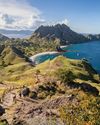
SULAWESI SENSATIONS
There are worlds within worlds and marvels untold waiting to be experienced on Indonesia's remote islands.
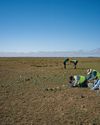
SEARCHING FOR AUSSIE DINOSAURS
Our understanding of where to find ancient life in Australia has been turned on its head by a new appreciation of the country's geology. Now the world is looking to our vast outback as the latest hotspot to locate fossils.
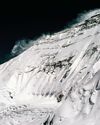
THE HARDEST NIGHT
The first Australian ascent of Mt Everest in 1984 is one of the great feats of mountaineering. Climbed by a small team semi-alpine style, with no bottled oxygen, via the Great (Norton) Couloir, it remains unrepeated 40 years later.
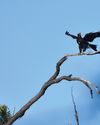
WEDGE-TAILED WONDER
The chance discovery of an eagle nest leads to an extended vigil observing normally hidden behaviours of one of nature's supreme winged marvels.
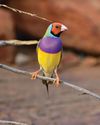
BURDENED BY BEAUTY
Northern Australia's Gouldian finch survives in huge numbers in cages around the world, but its wild population continues to struggle.
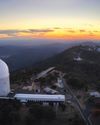
A TELESCOPE FOR A GOLDEN AGE
After a stellar 50 years as one of the country's major scientific assets, the AAT continues to play a major role in keeping Australian astronomy on the world stage.
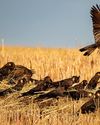
COCKY WHISPERING AT COOMALLO CREEK
This patch of remnant bush on the edge of the West Australian wheatbelt is a place loved by one of Australia's rarest bird species and the man who has studied the site for more than 50 years.

A PIONEERING PAIR
Louisa Atkinson and her mother, Charlotte, were among Australia's earliest authors, and pioneers in women's rights.
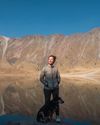
THE LONGEST WALK
Lucy Barnard is walking from Argentina to Alaska -the length of the Americas - on an extraordinary journey of endurance and adventure.
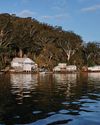
SECLUDED, BUT NOT ALONE
In an era of heightened social isolation, where many of us lead lonely lives, Dangar Island offers the chance to be part of a supportive, connected community.